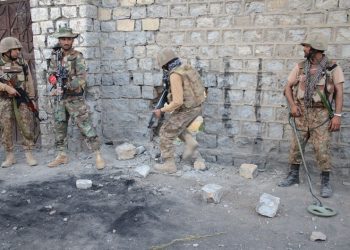Pakistan on Tuesday (today) marks mass rape of Kashmiri women in Kunan and Poshpora villages of Indian Illegally Occupied Jammu and Kashmir (IIOJK) on 23 February, 1991.
According to Ministry of Foreign Affairs (MoFA), the fateful day when Indian forces utilized mass rape as a weapon against Kashmiri women, remains a scar on collective memory of the international community.
“India has employed rape, torture, degrading treatment and killings of Kashmiri women as instruments of state terrorism in the occupied territory. These state sanctioned heinous crimes have further intensified since India’s illegal and unilateral actions of 5th August 2019,” read the press-release issued by MoFA.
Kunan Poshpora: Here's a look at the forgotten story of mass rapes allegedly perpetrated by the Indian Army in Kashmir in 1991 pic.twitter.com/T0TkESrK9q
— TRT World (@trtworld) February 23, 2021
Foreign Office has also highlighted the lack of accountability of perpetrators and absence of justice for victims that continue to define India’s deliberate disregard for rule of law and human rights.
The incidents of systematic violence and mass rapes in IIOJK have been documented by a number of independent Commissions, human rights organizations, global media and civil society organizations, including the UN Office of the High Commissioner for Human Rights (OHCHR), it added.
Kunan Poshpora Mass Rape Incident
The Kunan Poshspora incident was an alleged mass-rape that occurred on February 23, 1991 when unit(s) of the Indian security forces, after being fired upon by militants, launched a search operation in the twin villages of Kunan and Poshpora, located in Kashmir’s remote Kupwara District.
The residents of the neighbourhood stated that militants had fired on soldiers nearby, which prompted the operation. Some of the villagers claimed that many women were raped by soldiers that night. The First information report filed in the police station after a visit by the local magistrate reported the number of women alleging rape as 23. However, Human Rights Watch asserts that this number could be between 23 and 100















































